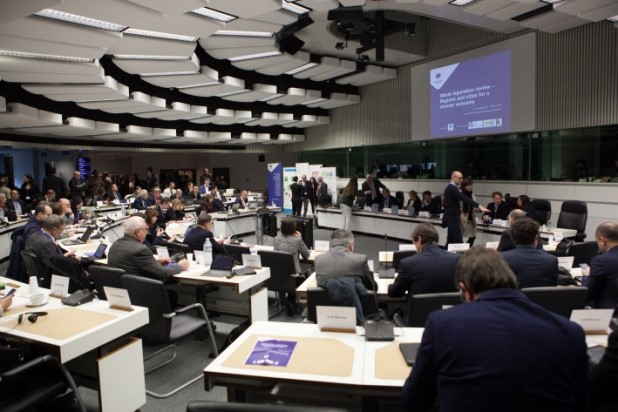
Photo: european-cities
European cities gain support in circular economy drive
01 February 2017
by Folkert Leffring
European cities and regions have received the support of the European Parliament in their call to incorporate more ambitious targets within the waste legislative package currently under review.
During a high-level debate on Tuesday (31 January) with José Herrera, Minister of the Environment, Malta, the Brussels-based European Committee of the Regions (CoR) reaffirmed its call for specific targets applying to construction and demolition waste, to be met by 2025 and 2030, and separate binding targets for waste streams such as furniture, fabrics and waste electrical and electronic equipment (WEEE).
“The Maltese Presidency is prioritising the waste legislative proposals with several Working Party meetings,” Herrera said. “We welcome contributions of local and regional authorities to the waste legislative proposals.”
CoR and the European Parliament will now push the EU towards more ambitious waste management directives and a stronger circular economy action plan.
“We are pleased to see members of the European Parliament sharing our positions on important measures such as increasing the reuse and recycling of municipal waste from 65 percent to 70 percent, and strengthening the extended producer responsibility and the phasing out of landfill,” said Domenico Gambacorta, President of the Province of Avellino, Italy and CoR rapporteur on the legislative proposals amending waste directives.
Together with the Parliament’s Committee on Environment, Public Health and Food Safety, cities and regions are building a coalition to boost the circular economy through higher reuse and recycling targets, cutting waste landfill and reinforcing extended producer responsibilities. According to CoR, the economic impact of the waste legislative package could create 180,000 direct jobs in the sector by 2030.
On food waste, both the CoR and the European Parliament are calling Member States to agree on a food waste reduction target of 30 percent by 2025 and 50 percent by 2030. Food waste in the EU is estimated at some 89 million tonnes, or 180 kilograms per capita per year. Mirian Dalli, MEP Chair of the Circular Economy Working Group, stressed the importance of binding targets “without which we can never expect to experience real change”.
A spokesperson from the Council of European Municipalities and Regions (CEMR) told Cities Today that exact details of funding to help the transition to a circular economy and how towns and cities will be able to access EU funds will be closely monitored by CEMR. Marianne Overton, CEMR spokesperson for Environment and Lincolnshire Councillor, said that “to achieve a circular economy, small towns need help too. We call for a financial framework that allows them to achieve EU targets. EU investment funds are great, but they are not adapted to thousands of towns and cities with smaller capacities”.
Local and regional leaders will closely follow the negotiation process as the European Parliament is to vote on the new legislative proposals during its 13-16 March plenary session.






